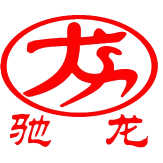
Du skal vælge det rigtige skummiddel, der påvirker de ønskede egenskaber af din betonblanding. På grund af de mange skumproducerende midler, der varierer i deres kemiske egenskaber, er det afgørende at bestemme ydeevne, omkostningseffektivitet og tilgængelighed, når du vælger blandt dem. Desuden er kompatibilitet med de andre materialer i blandingen vigtig for at undgå eventuelle negative effekter på betonstyrke og holdbarhed.
Hvis du nøje følger disse retningslinjer, garanterer du, at din skumbeton vil have den styrke, holdbarhed og modstand, den har brug for til at modstå eventuelle udfordringer i forbindelse med byggearbejde. Hvilket gør skumbeton som et stålfrit og letvægts alsidigt materiale mere velegnet til forskellige byggeanvendelser. Takeaway: Viden om hovedfaktorerne i skumbetonspecifikation og -forstærkning samt dens holdbarhed kan garantere, at din skumbeton vil være i stand til at overholde isoleringskravene sammen med tilhørende projektbehov.
Skumbeton er et letvægts, cementholdigt byggemateriale, der er ideelt til en række forskellige byggeanvendelser. Skumbeton fremstilles ved at kombinere cement, vand og et beluftningsmiddel, normalt en skumgenerator. Resultatet er et materiale, der er let at håndtere, meget holdbart og omkostningseffektivt. , vil vi diskutere specifikationerne for skumbeton og de forskellige anvendelser, den kan bruges til.
Den første specifikation for skumbeton er materialets tæthed. Skumbeton har en densitet på 800-1600 kg/m3, hvilket gør den meget lettere end traditionel beton. Den nøjagtige densitet, der kræves, vil afhænge af applikationen, med lavere densiteter til isoleringsformål og højere densiteter til bærende applikationer. Trykstyrken af skumbeton er også variabel, spænder fra 1-10 MPa, afhængigt af densitet og blandingsdesign.
En anden vigtig specifikation for skumbeton er vand-cement-forholdet. Vand-cementforholdet bestemmer materialets bearbejdelighed og påvirker den hærdede skumbetons endelige styrke. Generelt vil et lavere vand-cement-forhold resultere i en stærkere skumbeton, men det kan også gøre materialet sværere at arbejde med. Vand-cementforholdet for skumbeton bør være mellem 0.3-0.5.
Skumbeton kan bruges i en række forskellige applikationer, herunder isolering, tagdækning, gulvbelægning og vægsystemer. I isoleringsapplikationer bruges skumbeton ofte som et letvægtsfyldmateriale. Til tag- og gulvsystemer kan skumbeton støbes på plads eller præstøbes til paneler. Vægsystemer fremstillet af skumbeton kan give fremragende varmeisolering og modstandsdygtighed over for fugt og brand.
Virksomheden akkrediteret ISO9001, CE andre certificeringer. ejer desuden mere end 20 patenter samt 2 opfindelser skumbetonspecifikationer svarende til minefyldningsskumbetonmaskine. Disse beskyttede uafhængigt ejede intellektuelle ejendomsrettigheder. blev kategoriseret som en "national højteknologisk virksomhed".
Virksomheden har i mange år haft et samarbejde med skumbetonspecifikationer med logistikvirksomheder fra hele verden. skumbetonudstyr er blevet solgt sikkert i mere end 60 lande rundt om i verden takket være deres tjenester af høj kvalitet. Selskabet har kapacitet og kapacitet til at give top eftersalgsservice personale installere, bruge eftersalgsudstyret. Nogle af vores kunder benytter allerede lokal eftersalgssupport. leverer også reservedele til kunder, der har det bedre.
Chilung sin egen RD-afdeling. er kommet op med seks produktlinjer, som omfatter 30 modeller mere end 100 slags reservedele tilbehør, der imødekommer behovene hver kunde. Chilung blev tildelt over 30 patenter, deltog i at udarbejde flere skumbetonspecifikationsstandarder, var i tæt kontakt med designskolers universiteter.
Selskabets primære forretning er produktion af skumbetonudstyr og støtte til teknologisk innovation. virksomheden har evnen til at udvikle produktion og udstyr, der opfylder kundernes krav. kan gennemføre forskningsudviklingsinitiativer. I 2007 afsluttede et eksempel på vores forskningsprojekter på nationalt plan: konstruktionen af en mobil tagisoleringspumpe skumbetonspecifikation. I 2009 påtog vores virksomhed forskellige projekter i People's Liberation Army. Nogle af disse projekter fik militærpatenter. I 2016 gennemførte vi et undersøgelsesprojekt for Tsinghua University China, og i 2020 lancerede vi ikke-jernholdigt metal forskningsprojekt om sikkerhed i minedrift udført af China Gold Group.
Copyright © Yantai ChiLung Construction & Energy Saving Technology Co., Ltd. Alle rettigheder forbeholdes — Privatlivspolitik — Blog